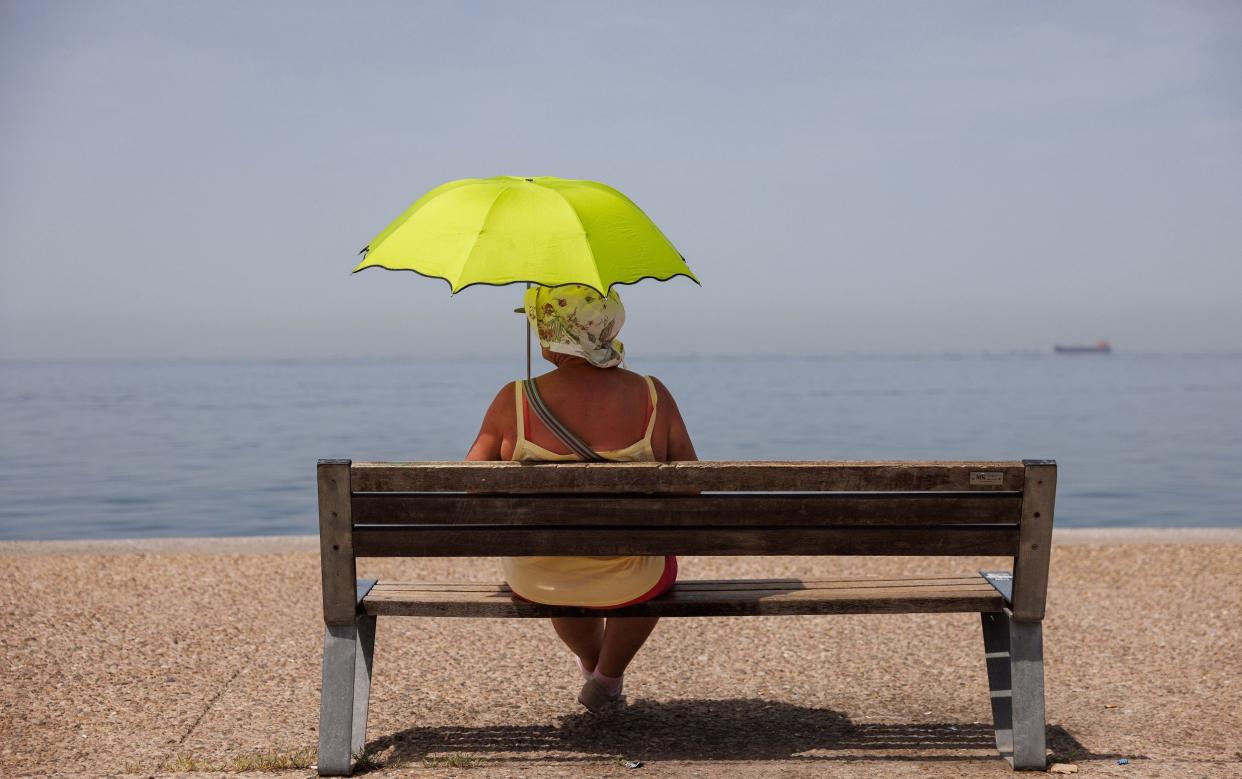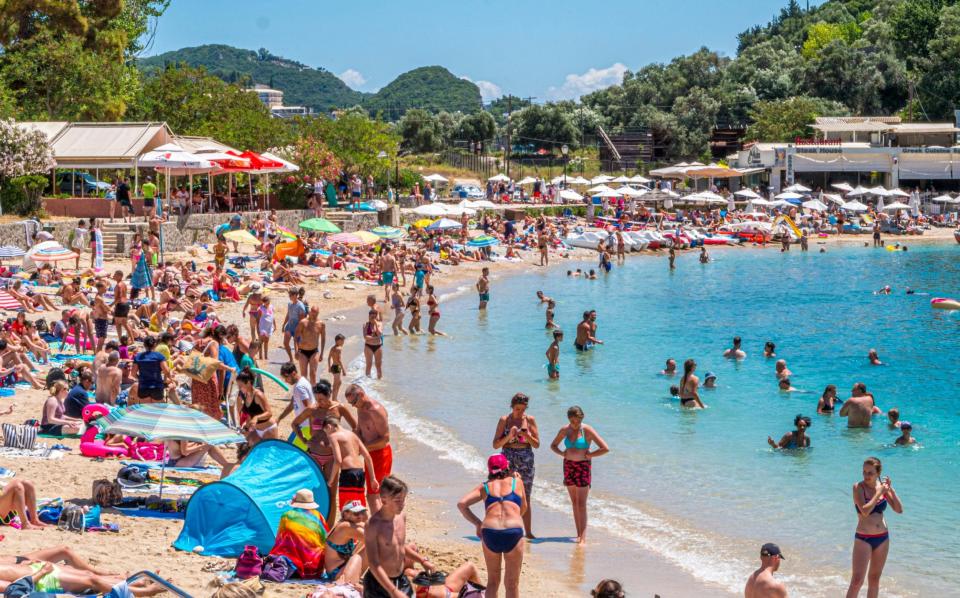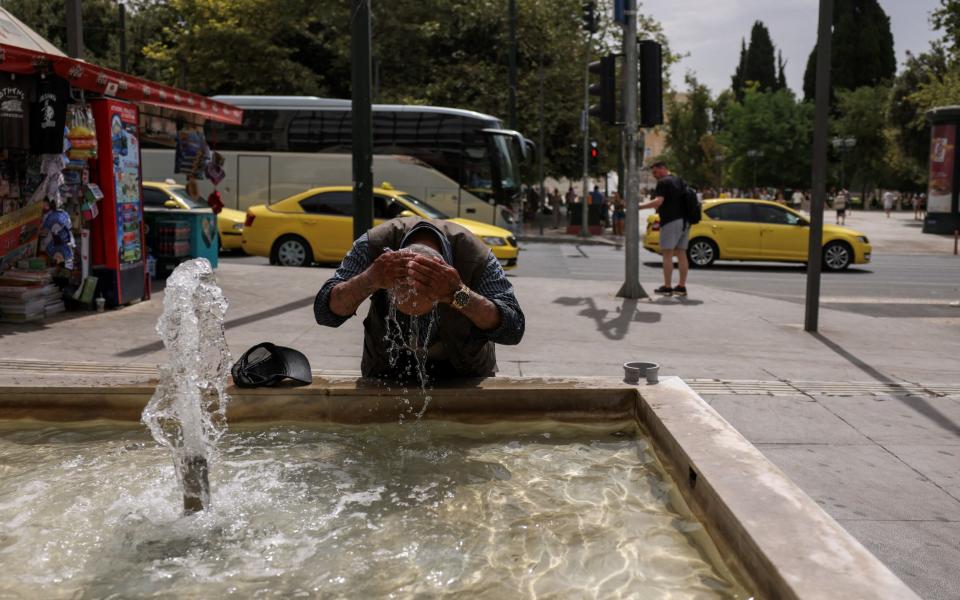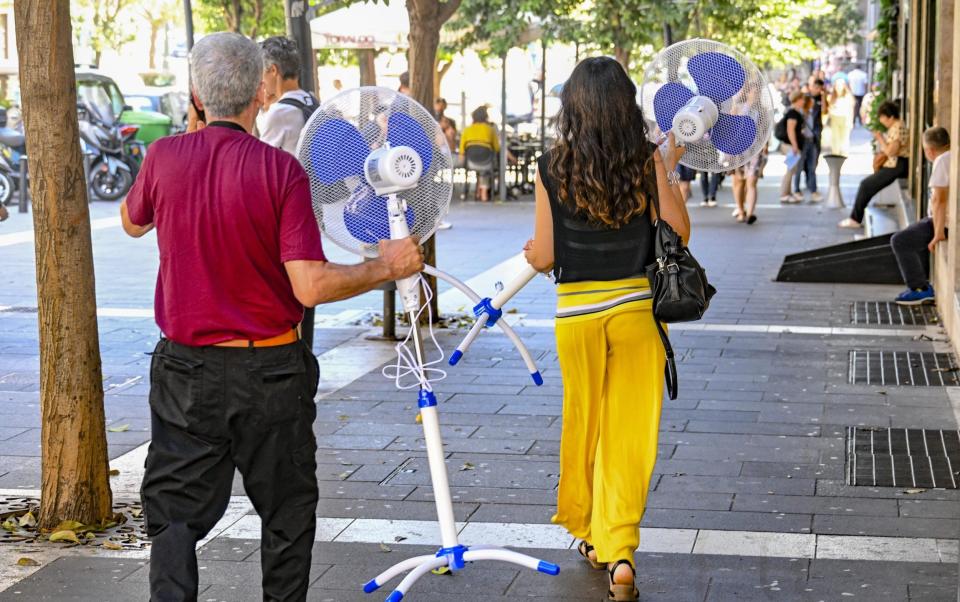This is the beginning of the end of the Mediterranean summer holiday

Tourists will never stop going to the Med. I have no doubt that, in 7.5 billion years or so, given the opportunity, there will be a British couple in Corfu applying cream to each other’s backs on the day planet Earth is absorbed by the sun. But all signs do suggest that by the end of this century, the Med will plummet in popularity as a summer holiday destination.
It’s hard to believe because, right now, the opposite is true. In a matter of weeks, millions of British families will receive a faceful of warmth as they disembark their planes in Palma de Mallorca, Palermo and Paphos. But it is this very heat that will also, one day, spell the end of summer holidays in the Med. Like Dubai in August, it will be too uncomfortable to handle.
This is not a hypothetical. It is already happening, and you may have experienced the notching up of the temperature gauge yourself. If you visited Greece over the last fortnight you will have endured the country’s earliest ever heatwave. If you visited certain parts of Catalonia over Easter, you would have been instructed to ration water amid a record-breaking drought, which has threatened to leave pools empty this summer. Or perhaps you were in Sicily in 2021 when the mercury hit 48.8C.

Some people argue that Europe has always experienced seasonal heatwaves like this, which is true. But they were not as hot, nor as frequent. The 10 hottest years on record have occurred since 2000, according to the Copernicus Climate Change Service (C3S). Last year, temperatures across Europe were 1C above average and reached over 2C above pre-industrial levels. Climate change is, of course, a global problem, which the scientific community agrees has been exacerbated by the excessive polluting activity of humans since the industrial revolution.
By all accounts, things are going to get hotter. The Met Office’s former lead on climate attribution, Peter Stott, predicts that temperatures in Europe will soon exceed the 50C threshold: “Most likely close to the Mediterranean where the influence of hot air from North Africa is strongest,” he said in 2021. Rosie Mammatt, a PHD student and expert in meteorology at the University of Reading, told The Telegraph: “It looks like this summer could provide some more record-breaking temperatures.”
As temperatures rise, it is the residents of southern Europe who will suffer first. The heat-related mortality rate in Europe has risen 30 per cent from the period 2003-12 to 2013-22, according to a Lancet report. Longer, warmer, drier summers are also causing droughts, which in turn affect agriculture and food production, damage to infrastructure and habitat destruction. The Mediterranean Sea is heating up faster than the global average, and is predicted to rise by up to a metre by 2100.

With all that in mind, worrying about where you’ll be laying your beach towel in 2043 feels a bit trivial, doesn’t it? But it isn’t. These economies rely heavily on your towel – tourism accounts for 18 per cent of GDP in Greece, 12 per cent in Spain, 10.5 per cent in Italy – so these governments are already thinking seriously about what climate change will mean for their holiday economies this century.
Because if the Med is off-limits for summer, where will we go instead? One obvious solution is to look up. Resorts across the Alps have suffered from low snowfall in recent winters, and many are beginning to pivot towards a summer tourism model instead. What this means is more wellness options, more stargazing tourism, more cultural festivals and so on.
Mountain accommodation options will start to feel less après. The Brecon (thebrecon.com), new to 2024 in the Swiss village of Adelboden, calls itself a “high-altitude hideaway”. While the adults-only Odles Lodge (odleslodge.it), opened in 2023 in Italy’s South Tyrol, puts emphasis on style and privacy.
We can also expect to see a stretching of the season, with the Easter break and May and October half terms becoming more popular holiday periods. Some firms are already tweaking their calendars: “The soaring summer temperatures in Europe are certainly making it more challenging for people to do active holidays,” says Radek Nowak from Intrepid Travel.
“We don’t run hiking trips in Spain and Portugal during the hottest months of July and August any more, and we’ve added more shoulder-season trips in April and October to make it easier for people to avoid the extreme temperatures. We’ve also added winter trips to places like Greece and Croatia.”

A spokesperson for Andronis, which has six hotels across Santorini and Paros, said: “May and September are becoming busier than the traditional summer months of July and August for summer holidays. The reputation of the summer months being very busy has led to a reverse trend, where now we see the lowest occupancies in the month of August during the season.”
Eventually, we will begin to look north. A 2023 paper commissioned by the EU, simulating different warming levels and the impact on tourists movement, predicts “a clear north-south pattern in tourism demand changes, with northern regions benefiting from climate change and southern regions facing significant reductions in tourism demand”.
This process is already underway. The chief executive of Tui, Sebastian Ebel, has said that the firm plans to invest in more package holidays around Poland’s Baltic Sea, plus the Netherlands and Belgium: “It gives us more opportunities for growth,” he said after the heatwaves of 2023.
For now, the Med in July and August remains our firm holiday favourite. But as more tourists experience excessive temperatures in the 40s, as wildfire evacuations at holiday resorts become a more common occurrence, when pools go empty, they will inevitably begin to look elsewhere, whether it be up a mountain, at a shoulder-season package, or a getaway on the Baltic Riviera.


